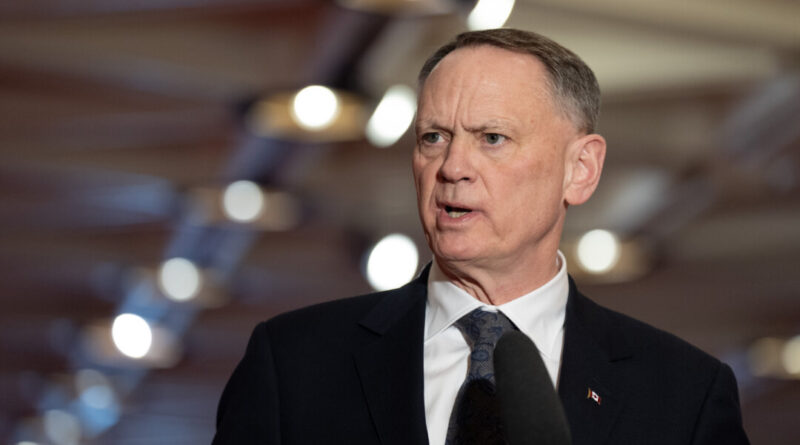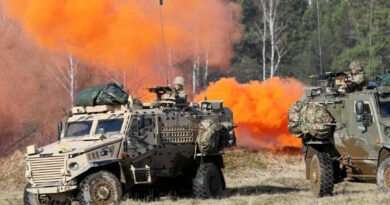Canada designates 7 Cartels as Terrorist Entities, mirroring US decision
Public Safety Minister David McGuinty stated that Ottawa is designating seven transnational criminal organizations as terrorist entities in an effort to strengthen its fight against drugs like fentanyl and avoid U.S. tariffs.
During a press conference in Ottawa on Feb. 20, McGuinty announced the appointment of a fentanyl czar to coordinate efforts between all levels of government, agencies, and law enforcement to address the fentanyl crisis plaguing communities.
The minister highlighted that the terrorist designation will enhance law enforcement’s capabilities to investigate and disrupt the illicit financing of drug cartels.
McGuinty emphasized, “We understand that disrupting the financial aspect will significantly impact the operations of these groups.”
Listing these criminal organizations as terrorist entities prohibits participation, support, or any dealings with their assets, which can be frozen by banks and brokerages for potential seizure or forfeiture.
The seven groups being designated include Tren de Aragua, Mara Salvatrucha, Cártel de Sinaloa, Cártel de Jalisco Nueva Generación, La Nueva Familia Michoacana, Cártel de Golfo, and Cárteles Unidos.
Tren de Aragua and Mara Salvatrucha (MS-13) are transnational crime groups originating from Venezuela and El Salvador, respectively, while the others are based in Mexico.
At the press conference, RCMP Commissioner Michael Duheme mentioned evidence of various international cartels and gangs operating in Canada, along with indications that some Canadians have facilitated the transport of illicit goods from Mexico and South America.
Duheme warned that non-designated organized crime groups in Canada cooperating with the cartels could face terrorism charges.
Canada’s decision to list these entities as terrorist organizations is based on intelligence and security agency assessments confirming their criminal activities, meeting the required criteria for designation.
US Action
Canada’s move to designate these groups as terrorist entities aligns with recent actions taken by the United States. Secretary of State Marco Rubio declared eight international criminal groups as foreign terrorist organizations on Feb. 6, with formal announcements made on Feb. 20.
President Donald Trump’s executive order on Jan. 20 initiated the process to label the groups as terrorist entities, citing national security risks posed by their proximity to the United States.
The decision to follow the U.S. in designating these organizations as terrorist entities was made by Canada on Feb. 3, coinciding with Trump’s tariff imposition on Canadian goods and energy imports.
Canada’s commitment to addressing the fentanyl crisis and improving border security was emphasized by Prime Minister Justin Trudeau amid concerns over increased fentanyl-related deaths and trafficking.
Health authorities in both Canada and the United States have noted alarming statistics related to opioid-related deaths, prompting collaborative efforts to combat the synthetic opioid crisis.
Efforts to combat fentanyl trafficking involve joint task forces, increased border security measures, and tracking the sources of synthetic drug precursors, primarily originating from China.
The involvement of organized crime groups in fentanyl trafficking has risen significantly, necessitating heightened enforcement and prevention strategies to address the crisis.



